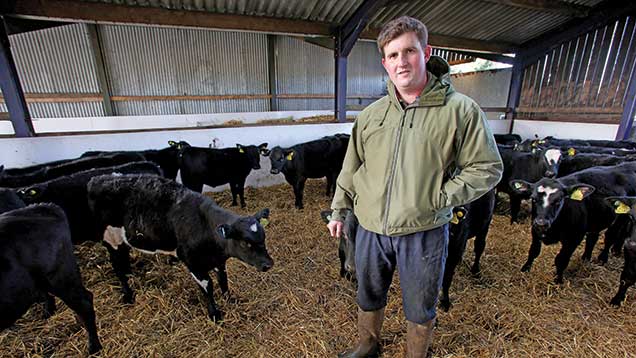Farmer Focus: Low-cost grass-based system pays off
 © Richard Stanton
© Richard Stanton We are busy as ever with another batch of calves on the milk machine and the main flock of ewes weaned.
The calves have been doing well in the drier weather, with medicine and straw use to a record minimum and growth rates exceeding expectations.
The ewes were weaned at 12 weeks and are still in good condition.
The first 50 lambs were sent to kill straight from their mothers and 32 achieved grades E and U, with most of the rest exceeding the minimum R3L base line.
See also: More news from the livestock farmer focus writers
It is pleasing to know our system is working and you can produce premium-grade lambs from a low-input grass-based, outdoor-lambing system, provided you have the right genetics and management.
I am glad I went down this route, especially given the current price of lamb.
The remaining lambs have just been put on to the plantain crop, which was only drilled six weeks ago.
It has grown well and responded to the digestate. This crop will also be used to help get ewe lambs up to tupping weight, with 200 going to the tup as part of the flock expansion.
Grass growth has been variable, with the newer leys rather disappointing during any drier spells and older leys still growing well by making use of deeper taproots.
The drought tolerance and mineral content of permanent pasture is often underrated. I am guilty of getting too hung up on reseeding at times when it often makes more sense to improve what we already have.
Rotational grazing of ewes and lambs and then weaned lambs has considerably improved grass yields, growth and quality, even on some very old pasture.
The next move here is to split all fields into semi-permanent 2ha paddocks and implement a dairy-style grazing management package.
Farming is going through some very difficult times at the moment across most sectors.
I think it is important to remember we are all under the same umbrella and we need to show each other more support regardless of what we farm or how we do it.
Jim Beary contract-rears 900 calves a year and has a growing flock of Aberfield-cross New Zealand Romney’s on a county council farm. He also runs a contract gritting enterprise in the winter.
